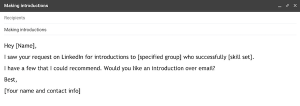Did you know that one toxic worker costs your company more money than a superstar employee?
Disgruntled employees are deeply dissatisfied with their job experience and are not engaged at work. They frown, and roll their eyes at customers.
They turndown new projects.
In the best situation, you can create a solution that works for everyone. In the worst situation, these workers sour the work environment and threaten the reputation of your company.
Managers and business owners need to stay attuned to any changes in behavior that signal a disgruntled employee. Before it gets out of control, look for these seven alarm bells, which can help you to reign in a negative situation:
1. No Motivation on the Job
There are a lot of reasons why employees become unmotivated on the job: interpersonal conflicts, problems at home, or the lack of professional challenges. If employees don’t seem to enjoy their work and are checked out of their roles, they probably have a disgruntled attitude.
Intrinsic motivation — or the willingness to work for the pleasure of it — creates the best results. When employees are not enjoying tasks, their performance and productivity suffers. In other words, if someone is reluctantly staying in a job because they don’t have the nerve to quit, there’s a problem you need to address.
2. Excessive Breaks, Late Starts, and Long Lunches
Employees who skip out on work through excessive breaks, late starts, long lunches, and a lot of sick days definitely have something go on. There’s no need to crack down on one employee when she’s five minutes late. But if you’re noticing a common thread make its way through someone’s schedule, you need to have a one-on-one conversation. Instead of chastising an employee, use this behavior as a starting point to check-in and clarify your expectations.
3. Lack of Participation
A job isn’t all work — there should be opportunities to socialize with peers and have fun. If a typically enthusiastic team member sit out rather than participate in activities, it could signal feelings of disappointment or alienation. Notice if someone passes on a family meal at your restaurant or would rather go home than stay for happy hour. Although these behaviors are not “wrong,” they may reflect a deeper lack of satisfaction with work.
4. A Negative Attitude
Disgruntled employees can range from very passive to extremely aggressive when it comes to expressing negativity. Depending on the individual, the signs can manifest in different ways. Abusive behavior or lashing out verbally requires immediate termination. For less threatening behavior, diligently record any incidents and face the employee head on rather than letting their attitude fester.
5. Actively Pursues Other Work
Employees who tell you they’re looking for a different job aren’t bluffing. If you notice a team member switching into nice clothes or leaving for a string of appointments over a couple of weeks, they’re most likely dissatisfied with some aspect of their job. Ideally, this behavior can prompt a candid and thoughtful conversation about why an employee wants to find alternative work. At the least, you’ll learn about some changes you can make to increase employee retention.
6. Difficulty Collaborating
If you hear that people are having difficulty interacting and collaborating with each other, be extra observant. Try to talk to each individual about the issues at play. Research from the Journal of Human Resources revealed that when employees witness workplace bullying, they are just as likely to feel disgruntled toward their employer as the victim of the bullying.
Ironically, sometimes it’s not the disgruntled employees that are the problem in an organization — it’s someone else who’s exhibiting inappropriate behavior or bullying. When you notice these challenges, try to dig deeper and recognize who or what triggered the problem.
7. Negative Feedback From Team Members
One of the clearest ways to know an employee is disgruntled is consistent negative feedback from team members. Note the way that employees talk about the other person — are they frustrated or just genuinely concerned?
Genuine concern is just as significant. There’s always a chance that the disgruntled employee has something personal going on, such as a family member with an illness or a recent breakup. Always show employees empathy and compassion during difficult conversations — it’s one of the best ways to cut through feelings of disillusionment.
The Next Steps
The old proverb “one bad apple spoils the bunch” is true when it comes to your team.
When you spot a disgruntled employee, address the issue immediately and with an open mind. It’s possible that there’s a significant challenge that the employee faces at work, and that he or she doesn’t feel sufficiently supported and compensated. By emphasizing clear communication and honesty, you can consistently strengthen the employee experience.
For issues that revolve around the employee rather than your company, set boundaries, offer practical tools, and create a concrete timeline for improvement. If they can’t honor those guidelines, consider letting go of the disgruntled team member sooner rather than later.
Business & Finance Articles on Business 2 Community(106)
Report Post





